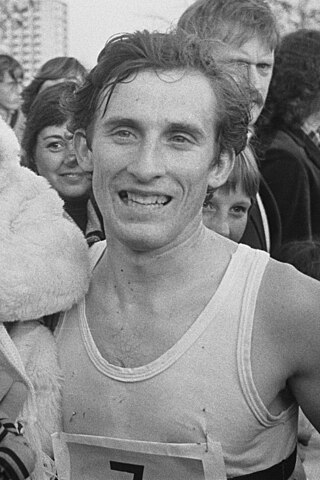Related Research Articles

The 1920 Summer Olympics, officially known as the Games of the VII Olympiad and commonly known as Antwerp 1920, were an international multi-sport event held in 1920 in Antwerp, Belgium.
At the 1908 Summer Olympics, a water polo tournament was contested.

Jan Koželuh was a Czech tennis player of the 1920s, not to be confused with his older brother Karel Koželuh (1895–1950), a player of the same era. Although Karel was inducted into the International Tennis Hall of Fame in Newport, Rhode Island, in 2006, Jan is almost totally forgotten today outside his native Czechoslovakia. He also competed at the 1924 Summer Olympics.
The equestrian events at the 1924 Paris Olympics included eventing, show jumping and dressage. Vaulting was not included this year. The competitions were held from 21 to 27 July 1924. 17 nations fielded teams: Austria, Belgium, Bulgaria, Czechoslovakia, Denmark, Finland, France, Great Britain, Italy, the Netherlands, Poland, Portugal, Spain, Sweden, Switzerland, USA, and Yugoslavia, with Germany not being invited. Of those 17 countries, only 5 fielded teams in all 3 disciplines: France, Sweden, Belgium, Switzerland and Czechoslovakia. A total of 97 entries and 126 horses competed. Horses in both the jumping and eventing competitions were required to carry at least 75 kilograms (165 lb).

The equestrian events at the 1928 Summer Olympics included dressage, eventing, and show jumping. All three disciplines had both individual and team competitions. The competitions were held from 8 to 12 August 1928. Teams were now fielded by three riders, rather than four, the purpose being to reduce pressure on national federations to find that many riders in order to compete for team medals. Riders had to be considered amateurs, which was defined as either an actively serving professional officer, or as a gentleman rider as defined by the rules of that rider's national governing body. A total of 113 entries were present from 20 nations: Argentina, Austria, Belgium, Bulgaria, Czechoslovakia, Denmark, Finland, France, Germany, Hungary, Italy, Japan, the Netherlands, Norway, Poland, Portugal, Spain, Sweden, Switzerland, and the USA. This was the first appearance for Hungary, Japan and Argentina in equestrian events at an Olympics. Additionally, after being shut out from two Olympic competitions, Germany also returned to the Games to win a few medals in the equestrian events.

Karel Lismont is a former Belgian long-distance runner. He competed at the 1972, 1976, 1980 and 1984 Olympics in the marathon and 10,000 m events. He won two marathon medals: a silver in 1972 and a bronze in 1976, finishing ninth and twenty-fourth in 1980 and 1984, respectively; he was less successful in the 10,000 m, finishing eleventh in 1976 and failing to reach the final in 1972. His personal best for the marathon was 2:11:12.6 at the 1976 Olympic Games.

Athletes from the Netherlands competed at the 1924 Summer Olympics in Paris, France. 177 competitors, 168 men and 9 women, took part in 81 events in 17 sports.
At the 1924 Summer Olympics in Paris, a single modern pentathlon event was contested. It was the third appearance of the sport; for the third straight time, Sweden swept the medals.
Final results for the water polo tournament at the 1924 Summer Olympics. All medals were decided by using the Bergvall system.
Karel Mejta was a Czech rower who competed for Czechoslovakia in the 1952 Summer Olympics.

The men's coxed four event was part of the rowing programme at the 1924 Summer Olympics. The competition, the fourth appearance of the event, was held from 13 to 17 July 1924 on the river Seine. There were 10 boats from 10 nations, with each nation limited to a single boat in the event. The event was won by Switzerland, the nation's second consecutive victory in the event; the two Swiss victories matched Germany for most among nations to that point. France earned its first medal in the event since 1900 with silver. The United States reached the podium for the second straight Games with a bronze medal. Hans Walter, a member of the Swiss crew in 1920 as well as this year, was the first man to win two medals in the event, and the only one to win two golds.

The Spain national football team represents Spain in international association football and is controlled by the Royal Spanish Football Federation. The Spanish team played their first match during the 1920 Summer Olympics on the 28 August 1920, a 1–0 win over Denmark. During that tournament they also defeated Sweden, Italy and the Netherlands to claim the silver medal after they lost to Belgium in the quarter-finals.
Karel Tůma was a Czechoslovakian modern pentathlete. He competed at the 1924 Summer Olympics.
Karel Červenka was a Czech cyclist. He competed in two events at the 1924 Summer Olympics.
Karel Přibyl was a Czech sprinter. He competed in the 400 metres and the 800 metres at the 1920 Summer Olympics and the 1924 Summer Olympics.

Karel Nedobitý was a Czechoslovakian long-distance runner. He competed in the 5000 metres at the 1924 Summer Olympics and the 1928 Summer Olympics.
Gustave Boesman was a Belgian footballer. He competed in the men's tournament at the 1928 Summer Olympics.
Karel Koldovský was a Czech ski jumper. He competed in the individual event at the 1924 Winter Olympics.
The following is the list of squads that took part in the men's water polo tournament at the 1920 Summer Olympics.
Karel De Vis is a Belgian water polo player. He competed at the 1960 Summer Olympics and the 1964 Summer Olympics.
References
- ↑ "Karel TUNS - Olympic Boxing | Belgium". International Olympic Committee . 13 June 2016. Retrieved 12 June 2020.
- ↑ "Karel Tuns". Olympedia. Retrieved 6 October 2021.
- ↑ "Karel Tuns - Sports Reference". Sports Reference . Archived from the original on 18 April 2020.